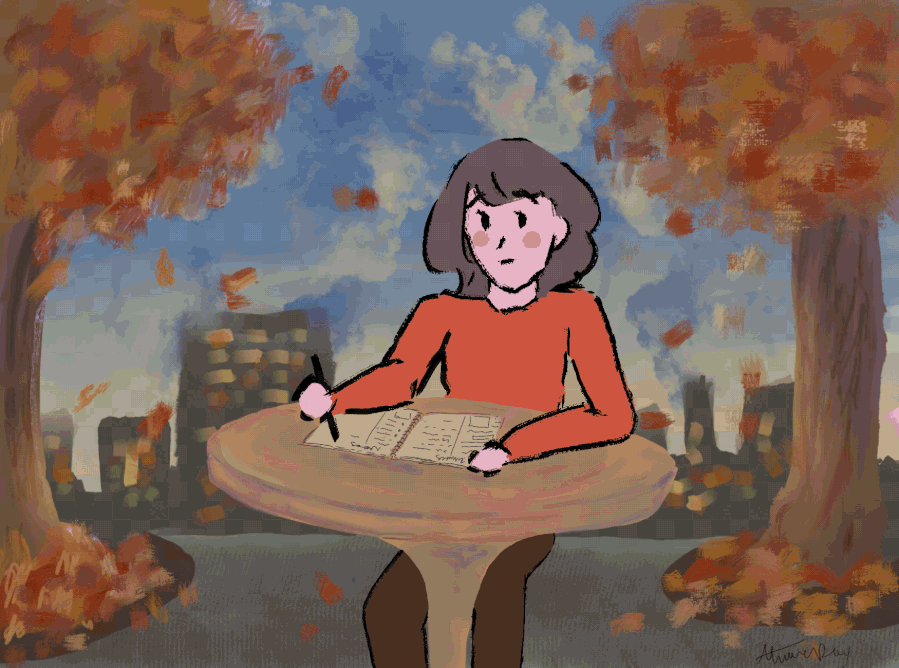The first day back from spring break, the sun was shining, birds were chirping and I woke up ready to do…nothing.
Nada. Zilch. One of the first thoughts I had that morning was I still have nine more weeks of this.
I know that I am not the only one feeling this way. I remember opening a group chat with my best friends, where one of them texted, “Morning! Ready to pretend school is fun again?”
I did not want to pretend.
After about 27 weeks of sleepless nights studying for seemingly never-ending quizzes and tests and working on the occasional group project that should have been an individual one, mustering up energy to keep going in the last nine weeks is like trying to force a turtle to run.
I catch myself sitting in many of my classes only to look over and see a student scrolling through various apps on their iPad, paying zero attention to what they are being taught. The general attitude of many students seems to be “I can afford to barely scrape by.”
Forget senioritis, it might as well be renamed as who-cares-itis.
This lack of motivation is detrimental for many reasons. Deteriorating grades is one of the main reasons colleges rescind offers, and although the top 10% of ranked students is solidified by the end of the first semester of senior year, their final transcript still needs to be sent to colleges. Additionally, financial aid is determined by a student’s grades.
While it is unrealistic for colleges to hyper-analyze every incoming freshman’s grades, a significant drop is sometimes too glaring to ignore.
Coppell High School English teacher Matthew Bowden, who predominantly teaches seniors in his AP Literature and Composition class, has observed a noticeable difference in his students when they return from spring break.
“You can see the body language,” Bowden said. “Everything gets more lax, informal and casual.”
It is not only a slip in grades that is a cause for concern. It is a change in attitude.
The end of seniors’ high school careers is becoming more in sight, making it more tempting to slack off and care less about school. Senior Reese Rutherford has noticed his lack of motivation.
“It seems like it doesn’t really matter since I’ve already applied,” Rutherford said.
So how can we continue to work hard?
Creating a schedule to dedicate time to different coursework helps, and prioritizing more difficult work helps get it out of the way. Having an environment free of distractions, such as your phone, ensures you are able to finish your work faster.
The last marking period could be an opportunity to fix mistakes you might have made in the previous three marking periods, especially in more difficult classes where your grades may have dropped, but it is also an opportunity to spend time with your friends. Don’t forget to prioritize making important memories as well.
Sophomore Sukanya Sivakolundu uses the last marking period as a way to prioritize classes she finds harder.
“For me, it depends on the previous marking period,” Sivakolundu said. “Since I didn’t do that well [in certain classes], I have to focus on those.”
Continually putting in effort translates to skills students need for life after high school.
“Work ethic is a great characteristic to have,” Bowden said. “High school is not the end. Work ethic is a habit, and you want to maintain that habit into college and beyond.”
Life doesn’t magically stop at the end of March. We still have responsibilities, work and commitments, and we will continue to have them after school ends.
CHS, it’s time to lock in.
Follow @CHSCampusNews on X.











